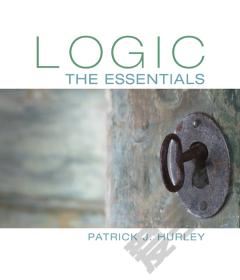The Principles of Logic
2. And there came a point where we had to transcend it. In negative inference we were forced to contemplate the possibility of retaining the middle (book II. Part I. V. If, our construction being reached, we choose to rest in it, if we refuse to isolate a single relation within that whole, if we prefer to treat the entire compound synthesis as the conclusion we want, are we logically wrong? Is there any law which orders us to eliminate, and, where we can not eliminate, forbids us to argue? The question once asked is its own reply, and it rings the knell of a blind superstition which vanishes in daylight.
{{comment.content}}








 京公网安备 11010802027623号
京公网安备 11010802027623号